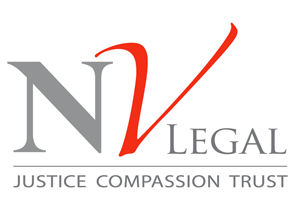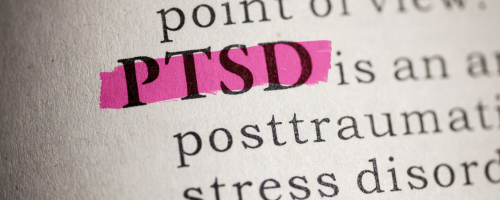Coping with PTSD After an Accident: A Guide for Stress Awareness Month
As Stress Awareness Month unfolds in the UK, it’s important to acknowledge that stress comes in many forms, often triggered by unexpected and traumatic events. One such event that can leave a lasting impact on mental health is experiencing an accident, particularly when it wasn’t your fault.
Post-Traumatic Stress Disorder (PTSD) can develop in the aftermath of such incidents, affecting your day-to-day life and overall well-being.
What is PTSD?
PTSD is a mental health condition that can develop after experiencing or witnessing a traumatic event. While it’s commonly associated with war veterans, anyone who has gone through a distressing incident, like a car crash or a serious injury, can develop PTSD.
An accident can shake your sense of safety and security when it occurs, especially if it is not your fault. You might constantly relive the event through intrusive memories or nightmares, experience heightened anxiety, and avoid situations reminiscent of the accident. These symptoms can significantly impair your quality of life and may persist for months or years without proper intervention.
It’s essential to recognise that people may respond differently to trauma, and various factors, including resilience, social support, and past experiences, can influence the development of PTSD.
PTSD and accidents
PTSD can develop following various types of accidents or traumatic events. Here are some examples:
Assault or violence: Experiencing physical assault, sexual assault, or witnessing acts of violence can result in PTSD. These traumatic events can leave victims feeling vulnerable, fearful, and distrustful of others, leading to persistent symptoms of PTSD.
Medical Emergencies: Severe medical emergencies, such as life-threatening illnesses, traumatic injuries, or complications during surgery, can trigger PTSD. The fear of death or the loss of bodily integrity, coupled with the distressing nature of medical procedures, can contribute to the development of PTSD symptoms.
Work-Related Accidents: Workplace accidents, including industrial mishaps, construction site injuries, or transportation incidents, can lead to PTSD among employees. The sudden and unexpected nature of these accidents, combined with potential injuries or fatalities, can cause significant psychological distress.
Combat or Military Service: Military personnel exposed to combat situations, warfare, or military-related trauma are at high risk of developing PTSD. The constant threat of harm, witnessing casualties, and experiencing extreme stress during deployments can have lasting effects on mental health.
Serious Car Accidents: Being involved in a serious car accident, whether as a driver, passenger, or pedestrian, can lead to PTSD. The impact of the collision, the fear of injury or death, and witnessing the suffering of others involved can contribute to the development of PTSD symptoms.
Terrorist Attacks: Surviving or witnessing terrorist attacks, bombings, or mass shootings can result in PTSD. The sudden and deliberate nature of these acts of violence, along with the loss of life and sense of security, can have profound and long-lasting effects on mental health.
Childhood Trauma: Traumatic experiences during childhood, such as physical abuse, sexual abuse, neglect, or witnessing domestic violence, can lead to PTSD later in life. The impact of early adversity on brain development and emotional regulation can increase susceptibility to PTSD.
PTSD symptoms
It’s essential to recognise the signs and symptoms of PTSD. Some common indicators include:
- Flashbacks or intrusive memories of the accident
- Nightmares related to the traumatic event
- Avoidance of places, people, or activities associated with the incident
- Hyperarousal, such as being easily startled or feeling on edge
- Negative changes in mood or beliefs about oneself or the world
If you or someone you know is experiencing these symptoms following an accident, it is crucial to seek support.
Treatment
Coping with PTSD after an accident requires patience, self-compassion, and professional guidance. You may want to consider:
Professional Help: Consulting with a therapist experienced in treating trauma can provide valuable support. Cognitive-behavioural therapy (CBT), eye movement desensitisation and reprocessing (EMDR), and exposure therapy are effective treatments for PTSD.
Self-Care: Engage in activities that promote relaxation and well-being, such as mindfulness meditation, deep breathing exercises, yoga, or spending time in nature. Prioritise adequate sleep, nutrition, and exercise to support your overall health.
A Support Network: Surround yourself with understanding friends and family members who can offer empathy and encouragement. Joining support groups for individuals with PTSD can provide a sense of community and validation.
Limit Exposure to Triggers: While it may not be possible to avoid all triggers, identify and minimise exposure to situations, places, or reminders that exacerbate your symptoms. Establishing boundaries and practising self-compassion when triggers arise is essential.
Create a Safety Plan: Develop coping strategies for managing distressing symptoms when they occur. This may include grounding techniques, such as focusing on sensory experiences or using soothing imagery to regain control during moments of anxiety or panic.
Educate Yourself: Learn more about PTSD and how it manifests after accidents. Understanding the condition can help normalise your experiences and reduce feelings of isolation or self-blame.
Be Patient with Yourself: Recovery from PTSD is a gradual process that takes time and effort. Be patient with yourself and celebrate small victories along the way. Healing is possible, even if it doesn’t happen overnight.
Support
Remember, it’s okay not to be okay, but it is important to reach out for support when needed. For additional resources and support, consider contacting organisations such as Mind , PTSD UK , or speaking with a mental health professional.
Let’s prioritise mental health and well-being, not just this month, but every day.
NV Legal
If you want further information on any of the issues covered, contact us for a FREE, no-obligation consultation. A solicitor with extensive experience in PTSD cases will help with your query.
Call – 03330 112 732
Email – info@nvlegal.co.uk
Website – nvlegal.co.uk
Find us on social media – Facebook, LinkedIn
Further Reading
Psychological Claims https://www.nvlegal.co.uk/psychological-injury-claims/
The HSE guide – Tackling work-related stress
The Mental Health Foundation has a wide range of publications available
NHS Guide on ‘Coping with stress following a major incident’


